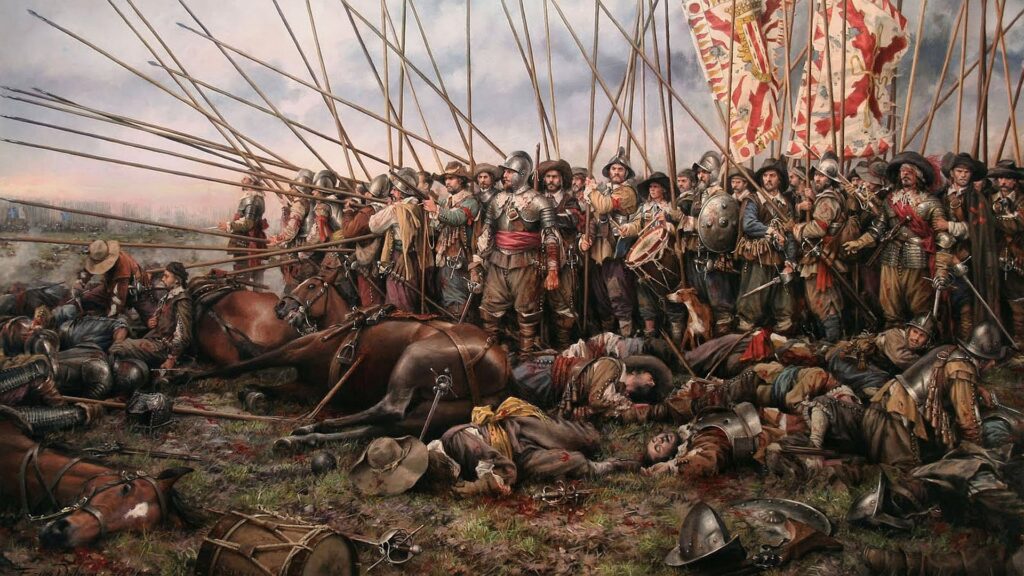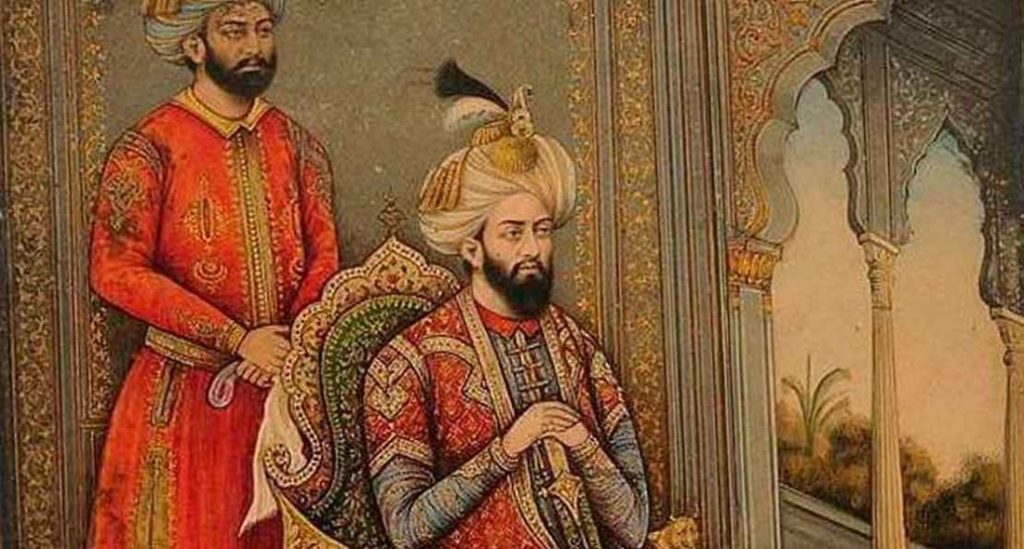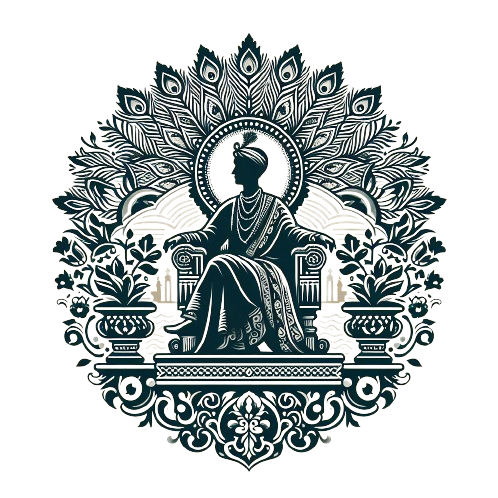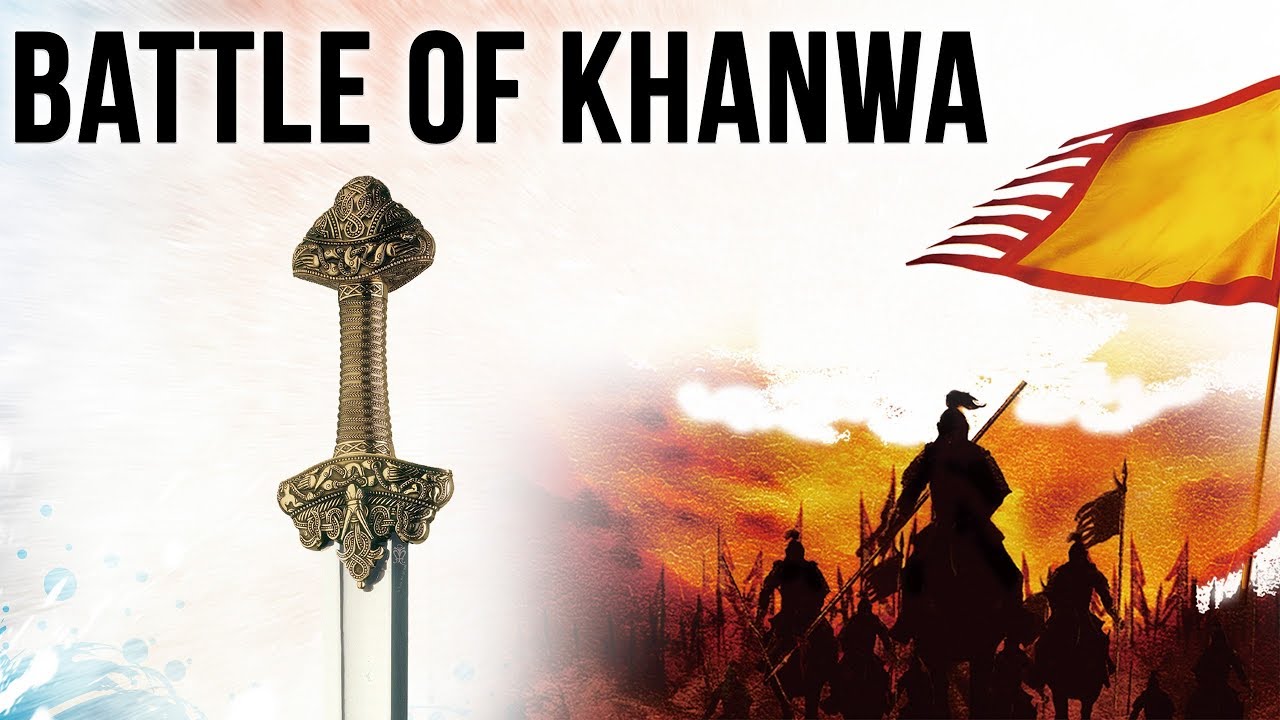Introduction To the Battle of Khanwa
The battle of Khanwa became the turning point in the history of India when it happened on March 16, 1527. This clash between two kings is considered the climax of the campaign and it opposes Babur, the creator of The Mughal Empire, to Rana Sanga of Mewar who is the most powerful of the Rajput rulers. Such a battle took place in Khanwa, near Bharatpur, on the plains of the region, facilitating a major coverage of the rivalry for power in the northern part of the country.
Background Information of Battle of Khanwa
And also before the battle itself, let us understand the main actors including. Babur, a grandson of the famous conquerors of Genghis Khan and Timur, grabbed the whole of India after success against Ibrahim Lodhi at the Battel of Pannipat in 1526. On the contrary, Rana Sanga was a Rajput chieftain of the same strength as the other, also known as an Indian warlord, who was famous for his military skills and the power he had to rule in Rajasthan.

Pre-Battle Preparations of Battle of Khanwa
As the drama of the situation rose between Babur and Rana Sanga, who controlled the Rajput confederacy, the leaders prepared themselves with utmost precision for the upcoming war which was drawing nearer. Babur, being smart and having the idea that the next battle would be very significant to his career, took measures to control North India. On the other hand, Sanga Rana grouped his forces and the Rajput kingdoms of various Rajput kingdoms were enrolled to oppose Babur’s victory claims.
The Battle Begins – Battle of Khanwa
The face-off between Babur’s and Rana Sanga’s forces took place on the soil of Kanwa, currently, nearby Bharatpur. The fighting took place on the ground of the former military base that suited the character of the siege and had strategic value both for attackers and defenders.
Key Turning Points in the Battle of Khanwa
In the course of the war, some great moments turned out to be crucial, deciding its conclusion at the end. The whole situation seemed to unfold gradually, beginning with an initial clash to having a key battle, that shaped the course of events.
Babur’s Tactics
Babur was an excellent strategist! As you will see, he used his expertise, and a bit of innovation to make the objective more achievable. He used the Mughal army’s substandard weapons to his advantage just like Rana Sanga’s weaknesses in defence facilitated victory.

Rana Sanga’s Strategies
Different from Rana Sanga, the power of Rajputs’ valour and chivalry was the pillar of their strategy because Rana Sanga put an accent on it. The ferociousness of the army forces was probably not the sole element that brought them defeat. Instead, their inability to deal with Babur’s well-disciplined war tactics ensured defeat.
The outcome of the Battle of Khanwa
In the end, Babur won and won substantially as he had thus become a dominant figure over Ramsingh’s army. The clash not only provided an impulse to the unification of the Mughal Empire, which gained ascendancy in North India, but also placed immense pressure on the aspirations of the Rajput Confederation.
Legacy of the Battle of Khanwa
The Battle of Khanwa was one of the key events that brought about a tremendous shift in history and determined the continuity of the subsequent events Babur virtuosity was the baseline for the founding of the Mughal Empire, creating a period of cultural and architectural delicacy. Rather, Rana Sanga’s army defeat reduced the local Rajput’s strength and caused the distribution of power in the region.
Conclusion
The Battle of Khanwa has had the effect of being the epitome of the struggle between the empires of the world and the power residing in the hearts of Indian martial traditions. Mughals could successfully fight the battle against the Sultanate of Delhi with the nut of defeating Rana Sanga’s army. The battle demonstrated the tremendous power of the new Mughal king and the next battles were more successful than this one.
FAQs
What caused the Battle of Khanwa?
The battle was motivated by Babur an expansionist in the North Indian region and Rana Sanga, trying to prevent Mughals from annexing Rajput territories.
What was the influence of Babur’s victory on the rule of the Mughals in India?
The victory of Babur at Khanwa enforced the Mughal control over the northern part of India and was the basis for the subsequent rule of the Mughals’ vast empire, which was in power for centuries in the Indian subcontinent.
What were the outcomes of Rana Sanga’s defeat?
Splitting into a confederacy of Rajputs, Rana Sanga’s loss during the war amplified the gains that Babur made in terms of power. It thus indicated that Rajput’s command was being eclipsed by the North Indian ones.
What is the cultural significance of the Battle of Khanwa?
Absolutely! The war did not just influence the political landscape but the contact also facilitated cultural exchange which was a factor that contributed to the syncretic nature of Mughal society.
Is the Battle of Khanwa still remembered nowadays?
Few people are aware of that now, but it was a hard-fought chapter in Indian history showing just how complicated, and at the same time influential power, identity, and conquest can be in medieval India.
What were the military advantages of Babur and Rana Sanga?
With their well-trained tactics and efficient artillery, the troops of Humayun were famous, while Ranasa’s army displayed great valour and made use of his cavalry excellently.
Who were the main leaders and generals to command their armies before the Battle of Khanwa?
Yes, the opponents had supremely skilled leaders on the side of both armies. Babur was not only the feudal leader but the supreme war general, whereas Rana Sanga utilized the knowledge and experience of his Rajput sardars.
How many hours did the Khanwa War last?
There were fierce battles that lasted for several hours, with a closely matched exchange of attacks throughout the day until Babur finally triumphed by the evening
What were Khanwa’s geographical impacts on the relations of both parties?
Its outcome may have led to the redrawing of political sounds in North India and the alteration of alliances between powers in the region, which shaped regional geopolitics for decades.
In brief, did the further battle between Rana Sanga and Babur lead to any diplomatic effects?
Indeed, the Khanwa victory was a stepping-stone to Babur being looked at seriously as a heavyweight monarch, which fomented diplomatic overtures from neighbouring sovereigns and increased the Mughal sphere of influence through expansion.

